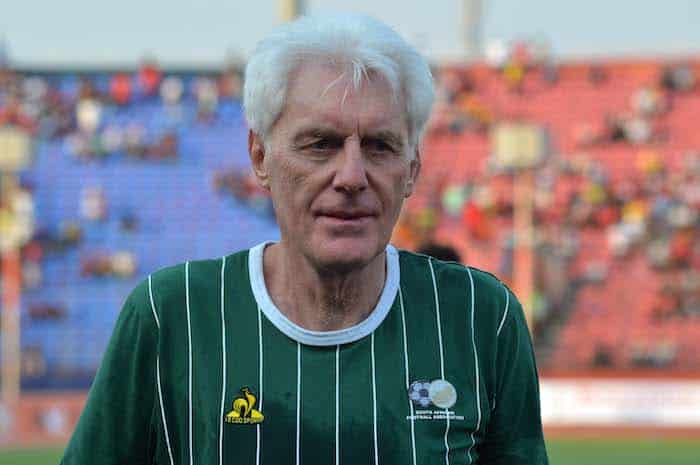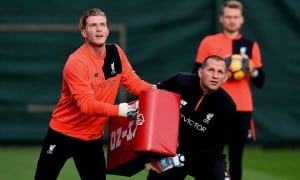Coach Hugo Broos has been forced into a U-turn after his initial plans for Bafana Bafana turned out to be folly, writes Mark Gleeson.
South Africa coach Hugo Broos was barely in the job when he made a statement that has come back to haunt him … and his team.
The veteran Belgian coach, now 70, told his employers, and the public, he wanted to rebuild the national side after South Africa had failed to qualify for the 2021 Africa Cup of Nations finals, a disappointment that cost predecessor Molefi Ntseki his job.
Broos, who was not the first choice for the Bafana job, but had won the Cup of Nations title with Cameroon in 2017, had watched videos of the poor performances against Ghana and Sudan and concluded there was a lack of fight in the South Africa camp.
Continuing with the same players would not serve his cause and he prefers, anyway, to work with younger players and, given he had signed a five-year contract, had plenty of time to build.
It was a pronouncement that met with almost universal applause. Pushing the agenda of youth in football is an obsessive topic in South African football, although the reality is that it is but a fantasy and a long distance from reality.
South Africa were about to embark on their World Cup qualifying campaign and turning to players aged 25 and under to try and qualify for Qatar did not strike any of the South African Football Association as something of a suicide mission. They might have told him to hold off on the revamp and use more experienced players to give Bafana Bafana a better shot.
But Broos was allowed to leave players such as Themba Zwane and Bradley Grobler out of the squad, and it came as no surprise when the national team failed to get past the group stage, the controversy of a penalty in their last game in Ghana providing some cover for Broos as SAFA made a comically unrealistic bid to try and reverse the result by claiming the referee cheated.
South Africa’s young team initially flattered with their performances, but it was inevitable that they would fall short. One of the game’s truer dictums is that youth does not win trophies.
That failure marked the first six months of Broos’ tenure, and he has since had another 15 months to come to grips with the reality of football in South Africa.
And we have seen quite a change of heart, with the youth ditched and him quietly changing his mind and backtracking on his original theories.
Mamelodi Sundowns’ magical midfielder Zwane is at 33 arguably the best player the team can pick – and has been so over the past two years – and after a frustrating year of being sidelined because of Broos’ age policy, is now back in the team. It produced immediate results when Zwane scored twice in his comeback game last year against Sierra Leone, when Broos finally could no longer ignore him.
If Broos had attempted to better understand the unique nature of South African football, he would have been aware the average age of footballers in the top flight is much higher than it is in Europe, or indeed elsewhere on the continent.
There is little appetite for youth at club level, where the demands of the professional game command instant results and there is no time to wait for players to blossom and develop.
Moreover, youth development is a much slower process than it could be, because top talent is only identified later than it should be and basic skills are taught too late.
The existing structures in the domestic game for youngsters aged under 15 years old are haphazard, but by that age, players should know how to trap, pass, cross and shoot.
That is not the case in South Africa, where emphasis on flashy play and trickery trumps teaching the basics, so kids do not have a basic foundation of when to pass and shoot … or even how to.
It is the reality of the South African situation, whether right or wrong, that players come to the professional game late – some only in the late 20s. A tough society means some just do not have early opportunities.
The number of teenagers who are playing in the DStv Premiership can be counted on two hands and the number of those with real promise is even less.
With that in mind, Broos had no business putting an age limit on team selection. A national side should, always and without fail, be made up of the best available players, irrespective of how old they are. The best goalkeeper, best right back, best left back and so on.
That is why Broos was right last November to recognise form and draft Miguel Timm into the team for his first cap. He made his debut at the age of 30 in the 2–1 win over Mozambique in a friendly at Nelspruit’s Mbombela Stadium. He has since turned 31 and is blossoming as a fan favourite, and the engine room for Orlando Pirates.
His career is an example of why restrictions are just nonsense. Timm made his professional debut in 2011 for Bidvest Wits – more than a decade ago – and has largely had a journeyman career, unable to command a regular place at Wits or Mpumalanga Black Aces, and going to the US to play semi- professionally for several years before returning to feature for Chippa United, Maritzburg United, Tshakhuma Tsha Madzivhandila and Marumo Gallants before a belated break at Pirates.
This unpredictability is the reality of professional sport. Age engineering is not possible in South Africa, and it is good to see that Broos has come around to realise it. Now we wonder: Had he played a stronger side in the World Cup qualifiers, might Bafana Bafana have qualified for Qatar?





